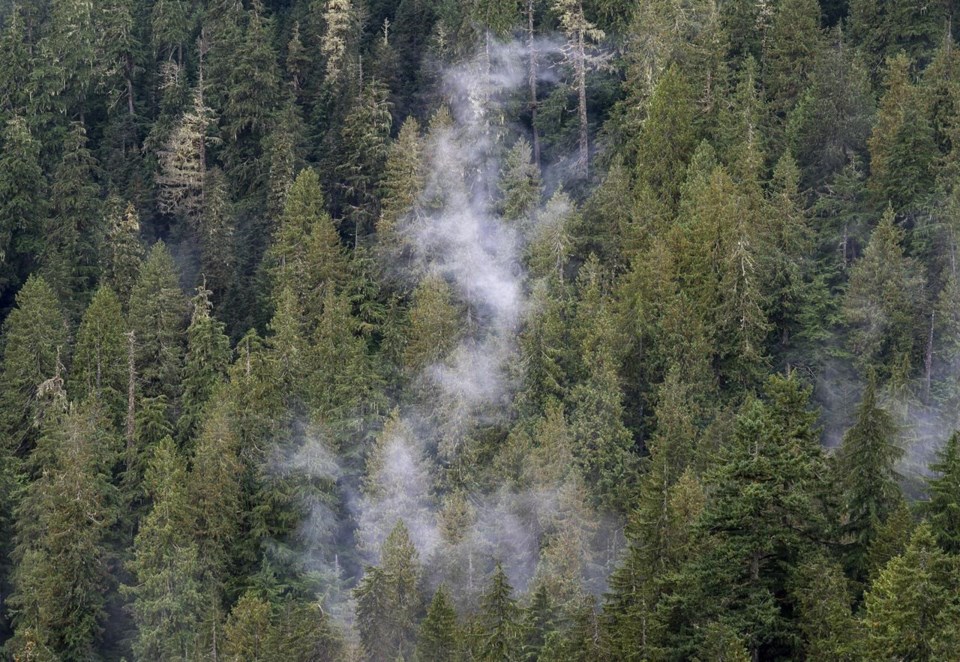VANCOUVER — The chair of British Columbia's forest watchdog says he was pleased to see a bill introduced with proposed changes to the Forest and Range Practices Act that could "reassert the public interest" in forestry decisions.
Kevin Kriese of the Forest Practices Board said the amendments are overdue and "only a start," given the complexity of implementing new forestry policies on the ground. He's keen to see a timeline, a fast pace and details on how and when the changes will take effect, he said in an interview Thursday.Â
Forests Minister Katrine Conroy told the legislature Wednesday that a new system of forest landscape plans developed alongside First Nations and local communities would replace the existing forest stewardship plans that had been developed largely by industry.
The existing system tends to be "industry driven" and doesn't plan for the health and makeup of forest ecosystems in the long term, Kriese said.
The new proposed framework would make it possible to manage forests based on longer-term predictions of what a forest would look like with a particular rate and pattern of logging and how that might affect the surrounding ecosystem, he said.Â
"That doesn't exist today," he said.
With the proposed changes, Conroy said companies with harvesting licences would be required to develop and submit their operational plans for ministry approval, and they would have to meet the requirements of the broader landscape-level plans.Â
The landscape and operations plans would be posted publicly, she noted.
Such transparency also marks a change from the existing regime, Kriese said.
The current system "doesn't actually show you where you're going to log, so how does the public review and comment when they can't actually see?" he asked.
Earlier amendments to the Forest and Range Practices Act passed in 2019 are meant to give the public the ability to weigh in on proposed activities, such as logging roads and cut blocks, but those changes have yet to take force, he said.
The latest proposed changes would also give B.C.'s chief forester the power to create mandatory "stocking standards" or reforestation requirements, he added.Â
"Sometimes (harvesting) licensees choose a stocking standard based on some short-term objectives," he said. "Sometimes that's not the (forest) stands you really want 30, 40, 50 or 100 years from now, so, the chief forester could step in and say, actually, on these kinds of sites, we've decided that we want a different trajectory."
Another key change would allow for the public disclosure of penalties and fines levied under the Forest and Range Practices Act, said Kriese, explaining that the public doesn't find out what happened if someone has broken the law.
Conroy said the province has been working with the forest industry on the changes, which are expected to come into effect through regulation over the next year.Â
The province has also been working to implement recommendations from an independent review of B.C.'s old-growth forest management released last year, including the deferral of logging in ecosystems at risk of irreversible loss, she said.
Kriese said he hopes additional amendments expected later this fall to the Forest Act, which is separate from the Forest and Range Practices Act, would address what he called an "unusual" level of constraint on government decision-making.Â
The existing act limits the ability of Forests Ministry officials to refuse authorization of a cutting or road permit when the forest tenure holder meets certain conditions, even when there are public interest concerns around the proposed work, he said.Â
The board has previously found instances "where it was apparent that if that discretion had existed, that authorizations might not have been issued," he said.
A series of "policy intentions" released in a report earlier this year signalled that the province would "explore options to provide discretion in authorization decisions based on important forest values, such as water, wildlife and Indigenous heritage."
Decision-makers must be able to reject permits or to approve them with conditions, if there are concerns the work could irreparably impair other forest values, it said.
This report by The Canadian Press was first published Oct. 21, 2021.Â
Brenna Owen, The Canadian Press




